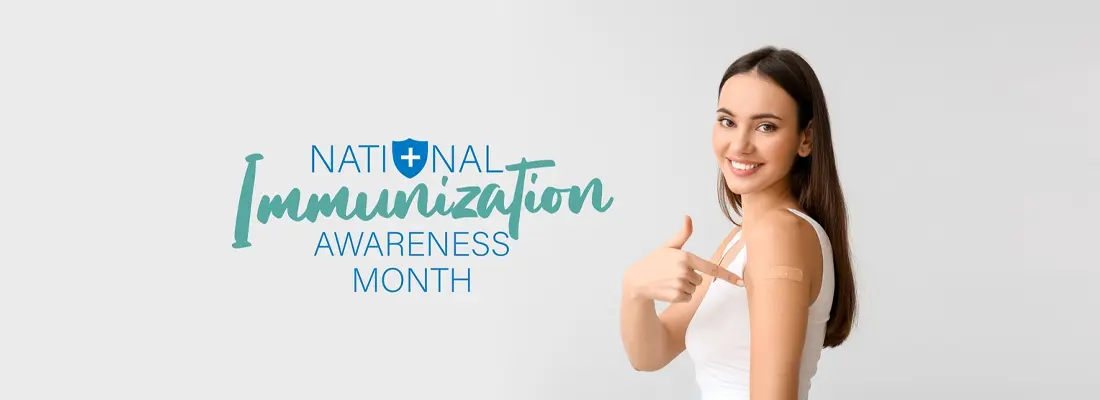Introduction
Have you ever stopped to think about the role vaccines play in your daily life? From childhood immunizations to adult boosters, vaccines protect us quietly in the background. National Immunization Awareness Month is the perfect reminder of how crucial this protection is.
In this blog, we’ll explore why vaccines matter, what this awareness month is about, how immunization benefits communities, and the role clinical research organizations play in shaping safer, more effective vaccines. Moreover, since august is national immunization awareness month, it’s the right time to reflect on what immunization means for our future.
What Is National Immunization Awareness Month?
Every August, health organizations across the United States highlight the importance of vaccines through national immunization awareness month 2025. This observance isn’t just a date on the calendar. It is reminder for families, schools, and communities to step up and make vaccination a priority.
Moreover, august is national immunization awareness month 2025, which emphasizes timely vaccination for all age groups. This year, awareness efforts go beyond routine shots, they also focus on vaccine research and trust in healthcare.
So, why does this matter? Because vaccines don’t only protect individuals. They safeguard entire communities. This concept, often called community protection, reduces the spread of dangerous diseases.
Why Vaccines Are a Lifelong Priority
Individuals might think vaccines are just for kids. Well, here’s the thing, they’re not. Vaccines protect us at every stage of life.
- Infants and children: Early shots guard against diseases like measles, polio, and whooping cough.
- Teens: Vaccines during adolescence help protect against HPV and meningitis.
- Adults: Flu shots, boosters, and travel vaccines protect long after childhood.
- Seniors: As we age, vaccines for shingles and pneumonia become essential.
Moreover, national immunization awareness month 2025 reminds us that immunization schedules are not one-size-fits-all. They adapt with your age and health needs. By staying up to date, individuals can protect both themselves and vulnerable groups who cannot get certain vaccines.
How Do Vaccines Protect More Than Just You?
When you get vaccinated, you create a shield. That shield doesn’t stop with you; it extends to others. This is especially important for people with weaker immune systems, such as newborns or those undergoing treatments like chemotherapy.
Furthermore, during national immunization awareness month, awareness campaigns highlight how vaccines help stop outbreaks. For instance, measles outbreaks in unvaccinated communities show how quickly diseases return when vaccine rates drop.
In addition, august is national immunization awareness month 2025, which highlights global lessons about outbreaks and the collective power of immunization.
Common Myths That Still Hold People Back
Even today, myths about vaccines spread faster than facts. You may have heard some of these:
- “Vaccines cause the disease they’re meant to prevent.”
- “Healthy people don’t need vaccines.”
- “Natural immunity is better.”
However, science shows otherwise. Vaccines contain weakened or inactive parts of germs that train the immune system without causing illness. Moreover, even healthy people need protection because they can unknowingly pass diseases to others.
During national immunization awareness month 2025, experts focus on breaking these myths through education. The goal is simple: replace fear with facts.
The Role of Clinical Research in Safer Vaccines
Behind every vaccine an individual receives, years of research and clinical trials ensure it’s safe and effective. Clinical Research Organizations (CROs) are central to this process.
Moreover, these clinical research organizations run trials that test vaccines in diverse populations. This helps ensure the vaccine works across ages, genders, and health conditions. Without these studies, we wouldn’t have the confidence we do today in vaccines.
As we recognize that august is national immunization awareness month 2025, it’s also a good time to acknowledge the volunteers who participate in these trials. Their contribution helps protect millions worldwide.
Looking Beyond Routine Vaccines: RSV & Ongoing Research
While most people think of vaccines for measles, flu, or polio, there’s another virus gaining attention: Respiratory Syncytial Virus (RSV). RSV is a common illness, but for infants, older adults, and people with weakened immune systems, it can become very serious.
At Revival Research Institute, ongoing clinical trials are exploring potential vaccines and treatment options for RSV. These studies aim to provide safer, more effective protection for the groups who need it most.
How Can an Individual Stay on Top of Their Vaccines?
Individual can stay up to date with vaccines by:
- Checking their vaccine record: Ask your healthcare provider if you’re missing doses.
- Follow age-based recommendations: It is necessary as each stage of life requires specific vaccines.
- Don’t skip boosters: Immunity fades over time, so boosters are essential.
- Talk to their doctor: If you have health conditions, ask about special vaccines.
Moreover, national immunization awareness month is the ideal reminder to make that call, schedule that appointment, and take action.
Conclusion
National immunization awareness month 2025 is more than just a campaign. It’s a reminder that vaccines save lives, protect communities, and prevent unnecessary suffering. From infants to seniors, every stage of life requires attention to immunization. Clinical research organizations play a key role in ensuring vaccines are safe and effective for everyone. Their work continues to shape the future of healthcare.




